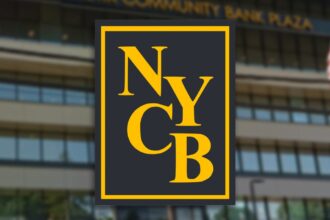Airbnb guests in Los Angeles.
Courtesy of Airbnb
It’s time to take a more careful and discerning look at growth stocks.
Growth investing trounced value in the first quarter. The
Russell 1000 Growth
index added nearly 14% in the first three months of 2023, while the value slice of the market benchmark was practically flat. Growth stocks dominated value by the widest margin since the first quarter of 2020.
Nvidia
(ticker: NVDA),
Meta Platforms
(META),
Tesla
(TSLA), Advanced Micro Devices (AMD), and
Salesforce.com
(CRM) each returned 50% or more. The next set of gains may be less broadly based.
Much of those early 2023 gains have come thanks to the rising-tide-lifts-all-boats effect of falling bond yields. Investors are expecting an end to the Federal Reserve’s interest-rate increases, and futures markets are pricing in meaningful cuts by year end. The yield on the 2-year U.S. Treasury note has declined to below 4%, from an early March peak around 5.1%.
The predominant expectation among economists and professional prognosticators is for a recession in the U.S. as soon as in the second half of 2023—as recent banking troubles result in tighter credit conditions and the lagging effect of Fed rate increases is felt in the labor market.
Unless the economy achieves a fabled “soft landing” scenario in which inflation slows to the Fed’s target without a recession, growth-oriented companies with real earnings and pricing power are in pole position to outperform the broader market.
“If the economy avoids recession, real yields are likely to rise and low-margin growth stock valuations are more sensitive to higher yields,”
Goldman Sachs
equity strategist Ryan Hammond wrote in a recent report. “If the economy enters recession, equity market pricing of growth will likely deteriorate and history suggests investors will reward ‘quality’ attributes, including high-margin stocks.”
The first quarter was a case in point. A Goldman basket of unprofitable technology stocks beat value stocks by 22 percentage points in January and February, when yields were declining and soft-landing optimism reigned. They lagged behind value by a point in March—as yields continued to decline but tremors in banking raised concern about a recession.
Large-cap growth stocks with stronger profitability beat value by 4 points in January and February and another 6 points in March alone.
To find stocks that would outperform in both a lower-yield but recessionary scenario and a higher-yield but faster growth environment, the Goldman strategists screened for shares in the Russell 3000 index of most public U.S. companies with the highest sales growth and profit margins expected over the next two years.
Barron’s narrowed the list further to companies with a market value of at least $10 billion and an enterprise value of no more than six times the annual sales they are expected to achieve a year or two from now. That would cover the time when a recession may have arrived). For comparison, Nvidia trades for a multiple of 17 times by that measure.
The screen yielded 13 names:
| Company / Ticker | Est. Sales Growth In Year 2 | Est. Net Margin in Year 2 | Market Capitalization (bil.) | EV/Est. Sales in Year 2 |
|---|---|---|---|---|
| Take-Two Interactive Software / TTWO | 25% | 17% | $19 | 2x |
| Qorvo / QRVO | 18% | 19% | $10 | 3x |
| Unity Software / U | 18% | 16% | $10 | 4x |
| First Solar / FSLR | 29% | 31% | $22 | 4x |
| Las Vegas Sands / LVS | 24% | 21% | $42 | 4x |
| Teradyne / TER | 20% | 24% | $16 | 5x |
| Advanced Micro Devices / AMD | 15% | 24% | $152 | 5x |
| Palantir Technologies / PLTR | 19% | 22% | $17 | 5x |
| Workday / WDAY | 18% | 20% | $49 | 5x |
| Marvell Technology / MRVL | 17% | 30% | $35 | 6x |
| Airbnb / ABNB | 15% | 24% | $74 | 6x |
| Paylocity Holding / PCTY | 20% | 22% | $10 | 6x |
| Zscaler / ZS | 27% | 17% | $16 | 6x |
Source: Goldman Sachs, FactSet
They include
Take-Two Interactive Software
(TTWO),
Qorvo
(QRVO),
Unity Software
(U), First Solar (FSLR),
Palantir Technologies
(PLTR), Workday (WDAY), and
Airbnb
(ABNB).
Write to Nicholas Jasinski at nicholas.jasinski@barrons.com
Read the full article here










